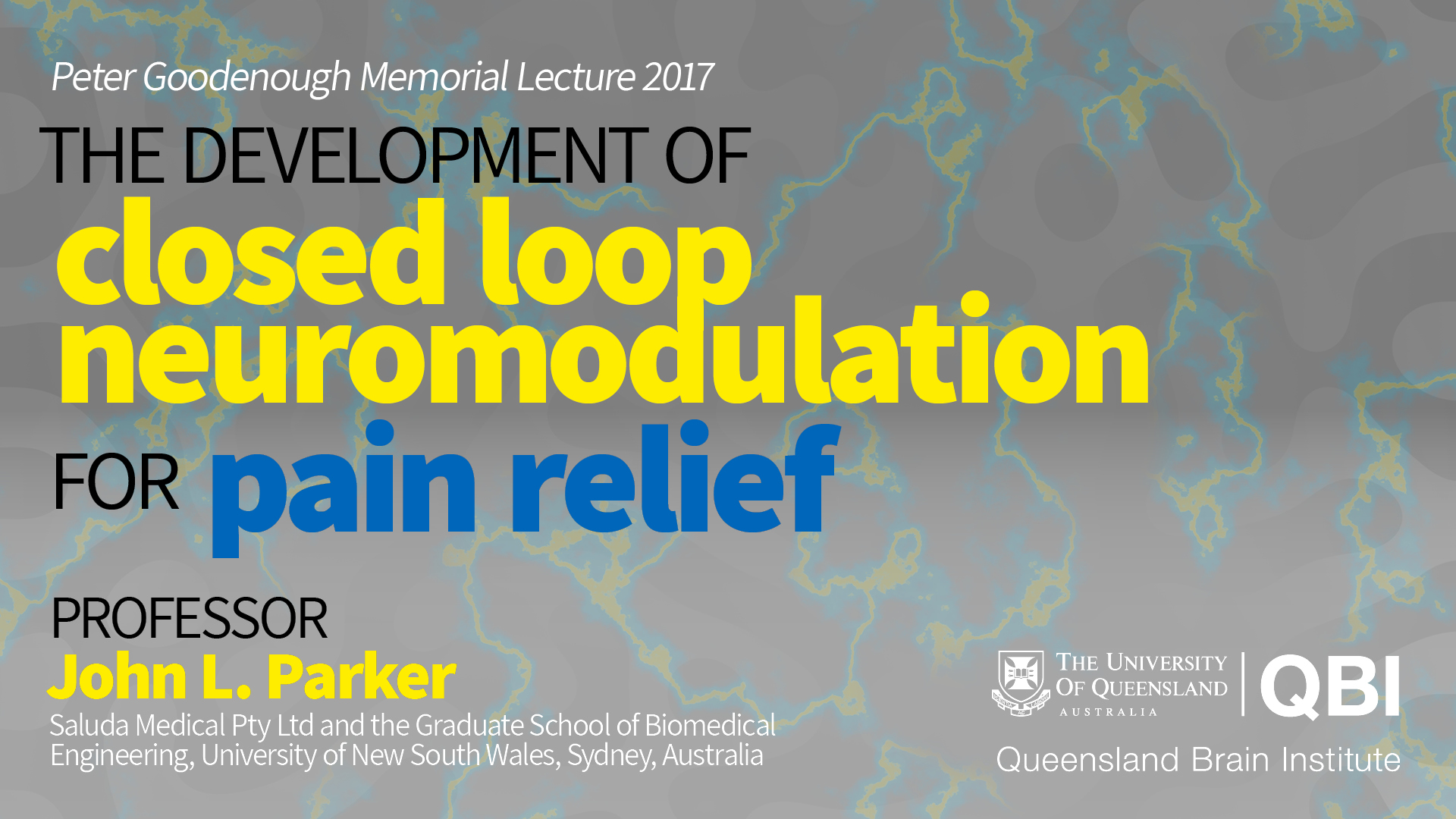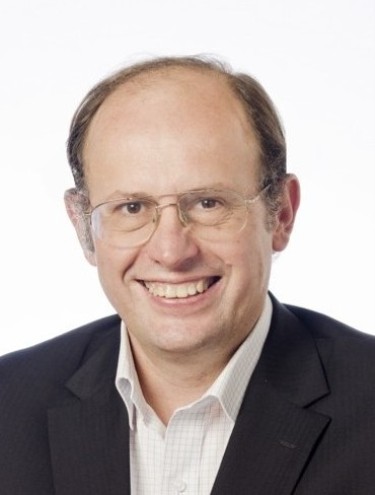Peter Goodenough Memorial Lecture 2017

Title
The development of closed loop neuromodulation for pain relief
Speaker

Dr John Parker is Founder and CEO of Saluda Medical Pty Ltd, a start-up company, established in 2013 with the goal of commercialising four years of neuromodulation research from NICTA, Australia’s information communications technology center of excellence.
Dr Parker has over 20 years of experience in medical devices, including 13 years at Cochlear Limited, where he served in the role of Chief Technology Officer / executive member of the board of directors. John has experience in working in every aspect of commercialisation of R&D, from pure research through to full industrialisation. John has an academic background (PhD ANU) and has worked in both Australian and international universities. Has authored numerous scientific publications and patents. John is an ATSE fellow, Harvard business School (PMD) graduate, Docent at the Royal Institute of technology in Stockholm Sweden, ATSE Clunies Ross Medallist (2010) and Adjunct Professor UNSW School of Biomedical Engineering.
Abstract
Electrical stimulation of the nervous system is currently used to treat a wide variety of disease including, Parkinson’s, Epilepsy, Neuropathic Pain and incontinence. A combination of improvements in technology and understanding of mechanisms of action has led to a consideration of an increasing range of applications.
There are ongoing and active developments to use these devices to treat many more diseases including rheumatoid arthritis, diabetes, chronic heart failure and Alzheimer’s. Neuromodulation is achieved with active implants which contain batteries and electronics for generating stimulation which is delivered to neuronal targets in the brain or a nerve via an array of implanted electrodes. The list of applications contemplated for neuromodulation is so large as to rival “the cure all miracle tonics” from the turn of the century. We are on the precipice of change and the ability to treat a wide variety of chronic conditions, recording neural activity and closed loop control will be central component of this technology.
John Parker is Founder and CEO of Saluda Medical Pty Ltd, a start-up company, established in 2013 with the goal of commercialising four years of neuromodulation research from NICTA, Australia’s Information and Communications Technology Centre of Excellence. Dr Parker has over 20 years of experience in medical devices, including 13 years at Cochlear Limited, where he served in the role of Chief Technology Officer and Executive Member of the Board of Directors. John has experience in working in every aspect of commercialisation of R&D, from pure research through to full industrialisation. He has an academic background (PhD ANU), has worked in both Australian and international universities and has authored numerous scientific publications and patents. John is an ATSE fellow, Harvard Business School (PMD) graduate, Docent at the Royal Institute of Technology in Stockholm Sweden, ATSE Clunies Ross Medallist (2010), and Adjunct Professor UNSW School of Biomedical Engineering.
The lecture will be followed by a cocktail party.
There is no cost to attend but please Register for catering purposes.
For further details please contact Katherine Robbins via +61 7 334 66412 or events@qbi.uq.edu.au
About Peter Goodenough Memorial Lecture
 The Peter Goodenough Lecture is an annual lecture to honour the legacy of giving by Mr Peter Goodenough (1935 – 2004) and is supported by the Peter Goodenough bequest. It is to be given by a prominent speaker who will target the role and importance of philanthropy and science funding to biomedical research.
The Peter Goodenough Lecture is an annual lecture to honour the legacy of giving by Mr Peter Goodenough (1935 – 2004) and is supported by the Peter Goodenough bequest. It is to be given by a prominent speaker who will target the role and importance of philanthropy and science funding to biomedical research.
The bequest, which included funding for a research laboratory is a showcase example of how members of the community can make a powerful and lasting contribution to the future health of all Australians. Mr Goodenough resolved to ensure his personal wealth would be directed to fighting MND, even though he knew he would personally not benefit from the research.
